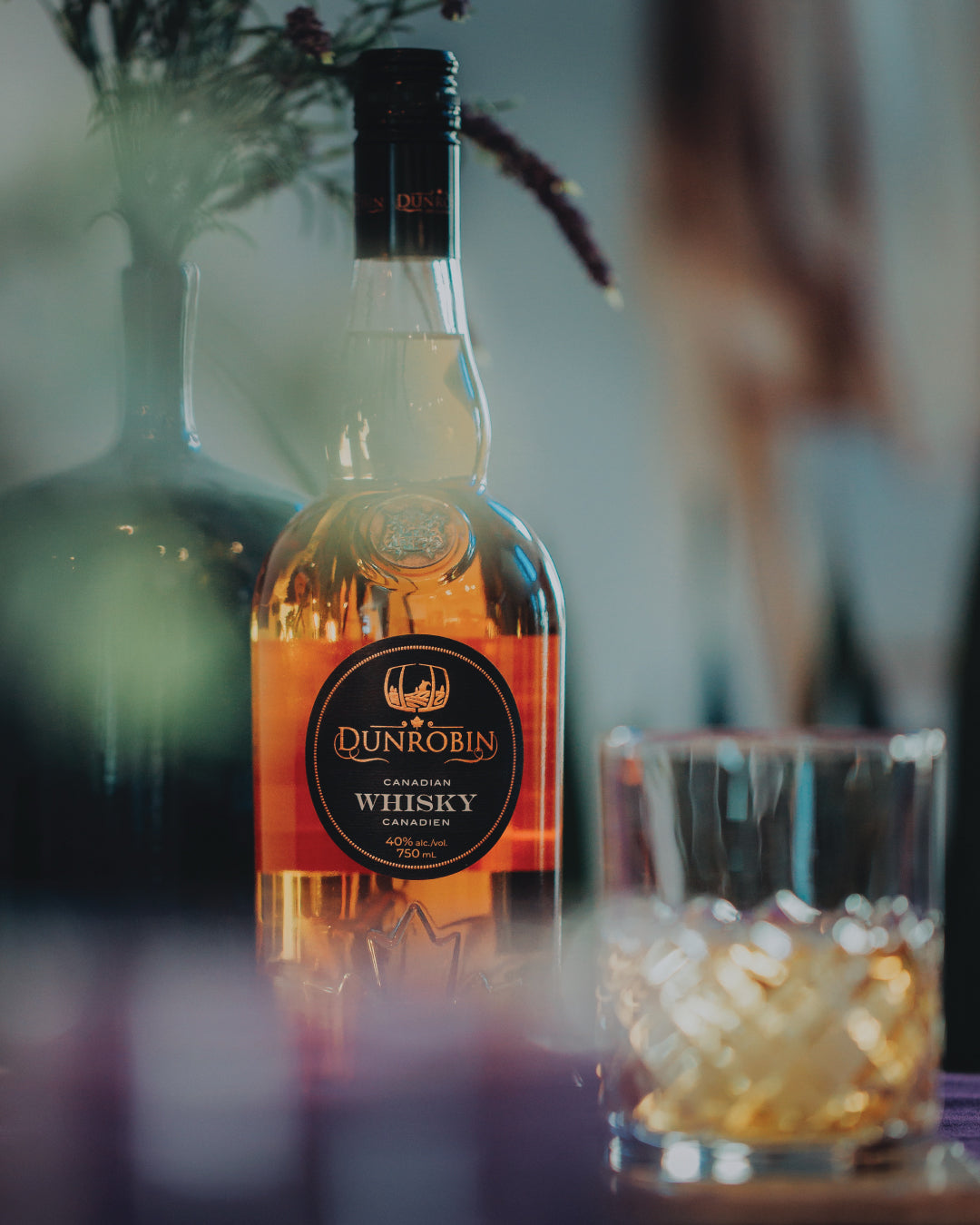
The Science of Bitters: How They Elevate Your Cocktails
At Dunrobin Distilleries, we pride ourselves on delivering premium spirits that offer unparalleled flavor and quality. Our range of whiskey, gin, vodka, and rum provides the perfect base for any cocktail. However, one ingredient often overlooked yet vital to creating exceptional cocktails is bitters. Understanding the science of bitters and how they elevate your cocktails can transform your drinking experience. In this blog, we will delve into the world of bitters, exploring their history, composition, and how they enhance the flavor profile of your favorite drinks. As an alcohol distributor in Singapore, we aim to offer you the best insights and tips for making outstanding cocktails.
What Are Bitters?

Bitters are aromatic flavoring agents created by infusing alcohol with botanical ingredients like herbs, spices, roots, and citrus peels. Despite their name, bitters are not necessarily bitter in taste; instead, they offer a complex array of flavors that can enhance and balance cocktails.
The History of Bitters
The use of bitters dates back to ancient civilizations, where they were originally used for medicinal purposes. Bitters were believed to aid digestion, cure ailments, and improve overall health. By the 19th century, bitters transitioned from medicinal use to become a crucial component in cocktails. The development of classic cocktails like the Old Fashioned and the Manhattan cemented the importance of bitters in mixology.
The Science Behind Bitters
Composition of Bitters
Bitters are typically made by macerating a blend of botanicals in high-proof alcohol. This process extracts the essential oils and compounds from the ingredients, creating a highly concentrated mixture. Common botanicals used in bitters include:
- Citrus Peels: Provide fresh, zesty notes.
- Herbs and Spices: Add aromatic and flavorful complexity.
- Roots and Barks: Contribute earthy and bitter tones.
How Bitters Work
Bitters work by engaging the palate in multiple ways. Here’s how they elevate your cocktails:
-
Enhancing Flavor:
- Bitters add depth and complexity to cocktails. They can highlight the flavors of other ingredients, bringing a cohesive taste to the drink.
-
Balancing Sweetness:
- In cocktails, the bitterness can counteract sweetness, creating a balanced and enjoyable flavor profile.
-
Aromatics:
- The aromatic compounds in bitters can enhance the olfactory experience, making the drink more enticing.
-
Digestive Benefits:
- Bitters are known to stimulate digestion, which can enhance the overall drinking experience, particularly after a meal.
Types of Bitters
Aromatic Bitters
Aromatic bitters are the most common type, known for their complex blend of herbs, spices, and botanicals. Examples include Angostura and Peychaud’s bitters.
Citrus Bitters
:max_bytes(150000):strip_icc()/citrus_hero1-34ada1a25b254f43864ebc62864195cd.jpg)
Citrus bitters focus on the zest and peels of citrus fruits, offering bright and zesty notes. They are perfect for adding a refreshing touch to cocktails.
Herbal Bitters
Herbal bitters are infused with a variety of herbs, each contributing unique flavors and health benefits. Common herbs include mint, rosemary, and basil.
Spiced Bitters

Spiced bitters incorporate spices such as cinnamon, clove, and cardamom, adding warmth and complexity to cocktails.
Custom Bitters
Crafting your own custom bitters allows for experimentation with various botanicals to create unique flavor profiles tailored to specific cocktails.
How to Use Bitters in Cocktails
Bitters can be used in a variety of ways to enhance your cocktails. Here are some methods and tips:
Classic Cocktails

Many classic cocktails call for bitters as a key ingredient. Here are a few examples:
-
Old Fashioned:
- Ingredients: 2 oz Dunrobin Whiskey, 1 sugar cube, 2-3 dashes aromatic bitters, orange twist.
- Instructions: Muddle the sugar cube with bitters in a glass. Add whiskey and ice, stir, and garnish with an orange twist.
-
Manhattan:
- Ingredients: 2 oz Dunrobin Whiskey, 1 oz sweet vermouth, 2 dashes aromatic bitters, cherry.
- Instructions: Stir ingredients with ice, strain into a glass, and garnish with a cherry.
-
Martini:
- Ingredients: 2 oz Dunrobin Gin, 1/2 oz dry vermouth, 1 dash orange bitters, lemon twist.
- Instructions: Stir ingredients with ice, strain into a glass, and garnish with a lemon twist.
Modern Mixology
In modern mixology, bartenders use bitters to create innovative and unique cocktails. Here are some tips for experimenting with bitters:
-
Layering Flavors:
- Combine different types of bitters to create a multi-dimensional flavor profile.
-
Aromatic Sprays:
- Use a spray bottle to mist bitters over the top of cocktails for an aromatic finish.
-
Bitters as a Base:
- Use bitters as a primary flavor component in low-ABV cocktails.
Pairing Bitters with Dunrobin Spirits
Pairing the right bitters with Dunrobin spirits can elevate your cocktails to new heights. Here are some recommended pairings:
-
Dunrobin Whiskey:
- Pairs well with aromatic and spiced bitters. Try a classic Old Fashioned or Manhattan.
-
Dunrobin Gin:
- Complemented by citrus and herbal bitters. Perfect for a refreshing Martini or Negroni.
-
- Versatile with citrus and custom bitters. Ideal for a Vodka Tonic or a custom creation.
-
- Enhances with spiced and aromatic bitters. Great for a Rum Old Fashioned or Daiquiri.
Creating Your Own Bitters
Creating your own bitters at home can be a fun and rewarding experience. Here’s a basic recipe to get you started:
Ingredients:
- 1 cup high-proof alcohol (vodka or grain alcohol)
- 1/2 cup dried botanicals (citrus peels, herbs, spices)
- 1 tbsp bittering agent (gentian root, wormwood)
- Glass jar with lid
- Strainer
Instructions:
- Combine all ingredients in a glass jar and seal tightly.
- Shake the jar daily and let it steep for 2-4 weeks.
- Strain the mixture through a fine strainer or cheesecloth.
- Transfer the bitters to a dropper bottle for easy use.
Health Benefits of Bitters

While bitters are primarily used to enhance cocktails, they also offer several health benefits:
-
Digestive Aid:
- Bitters can stimulate digestive enzymes and bile production, aiding in digestion.
-
Appetite Stimulant:
- Bitters can help stimulate appetite before meals, making them great as an aperitif.
-
Detoxification:
- Certain botanicals in bitters can support liver health and detoxification.
Conclusion
Bitters are an essential component in crafting exceptional cocktails. Their ability to enhance flavors, balance sweetness, and provide aromatic complexity makes them indispensable in mixology. At Dunrobin Distilleries, we are dedicated to offering premium spirits that pair perfectly with a variety of bitters, helping you create memorable and sophisticated drinks. By understanding the science of bitters and experimenting with different types and pairings, you can elevate your cocktail game to new heights.
Ready to explore the world of bitters and elevate your cocktails? Discover our range of premium spirits at Dunrobin Distilleries and start crafting your perfect drinks today. Follow us on social media for more recipes, tips, and inspiration. Cheers to exquisite cocktails with Dunrobin!
